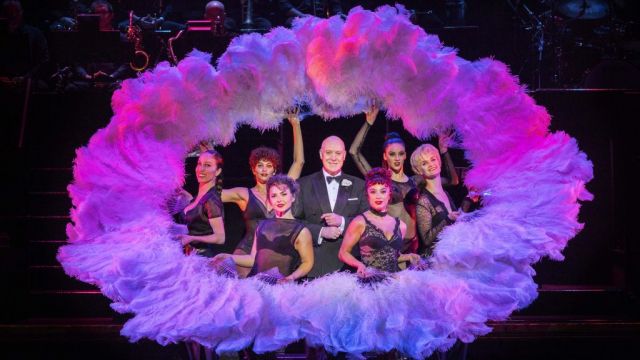Chicago
And here it is again – Chicago - just as sharp, funny, cynical, beautifully, flawlessly produced and hugely entertaining from end to end. It’s not a ‘revival’ because it never went away. By my count, I must have seen Chicago six times – including the movie. The Companion estimates she’s seen it eight times. Why does this black comedy musical set in 1920s Chicago unfailingly endure? Yes, it’s fascinating to see what a new cast will do with the characters and the songs, but there’s more to it than that.

On opening night, the audience greeted the opening notes of the songs with a wave of applause. They’re songs that will run around in your head for days – or maybe forever – with their 1920s pastiche vaudeville, honkey-tonk and dance hall tunes, and their punchy, witty clarity – and each song in character, and advancing the plot.

There is a plot: a simple, fast-moving, no fat plot that is pushed along at speed by direct address to the audience narration and monologues. It’s been called ‘Brechtian’ but it’s more ‘inspired by’ rather than modelled on. Nevertheless The Threepenny Opera is not a million miles away. Like Brecht and Weill’s piece, Chicago is a satire – with a better plot - on the easily manipulated ‘justice’ system and the cult of celebrity – where you can be famous for being an attractive criminal – or just famous for being famous.
Fosse’s chorography remains his distinctive, eccentric, wildly energetic schtick. You can see it most clearly in the number ‘I Can’t Do It Alone’ with its mix of elegant and goofy, superbly performed by Zoë Ventoura as Velma Kelly. Or the hilarious, frenetic ventriloquist doll number ‘We Both Reached for the Gun' - where Roxie Hart (Lucy Maunder) as the dummy sits on her lawyer Billy Flynn’s (Anthony Warlow) knee, floppy then upright, as he ventriloquises her phoney defence for the Press.

There are no costume changes – the show doesn’t need any – with the ensemble playing all the link and bit parts – narrators, the Press, the cops, the inmates of the gaol, Roxie’s lover and Roxie’s doctor, and the gawping public – and they are blessedly made up of all shapes and sizes. Each one at some stage has to speak or sing and they do that as well as they dance.

And how about these new lead cast members – that is, new in this production? Asabi Goodman’s Matron ‘Mama’ Morton is somehow both warm and menacing, coming into her own in the ironic duo with Velma, ‘Class’. What a pleasure to see Peter Rowsthorn as Amos Hart, ‘Mr Cellophane’, greeted with such love and applause at his every appearance. His Amos is funny but so touching that he makes Roxie seem even more ruthless. Lucy Maunder’s Roxie is ruthless, and Amos is discarded – never to be seen again. No sentimentality in this show. Both Maunder and Zoë Ventoura seem to me tougher and more credibly of the demi-monde than some I’ve seen in these roles – although both characters have their moments of realisation (‘My Own Best Friend’) and finally the bitter ‘Nowadays’. It’s a nice touch to let Roxie have the first verse of the latter by herself as if all this has not been lost on her… before it becomes vaudeville. As for Anthony Warlow’s morally reprehensible Billy Flynn, I cannot recall a more relaxed but assured performance of this role. He takes his time; he glides about; he makes a languid gesture; he turns tough when necessary; he winks at the audience, and he’s got ‘em in the palm of his hand. He makes a character of Billy Flynn.

Yes, you may have seen it before, but that’s no reason not to see it again. And if it’s your first time, you’re in for something special.
Michael Brindley
David Spicer at the opening night in Sydney.
What makes Chicago a stayer is that the issues it raises are as relevant today as when the original play was written. A reporter with the Chicago Tribune Maurine Dallas Watkins penned the play in 1926 inspired by two real-life trials of two women - exactly 100 years ago.

The issues of celebrity defendants, greedy lawyers, press manipulation and miscarriages of justice still strike a chord.
The cast is well settled into the musical. Anthony Warlow was commanding. Special mention to the sensational ensemble who were svelte and slick, and the big juicy dirty brass sound of the orchestra.
Photographer: Jeff Busby
Subscribe to our E-Newsletter, buy our latest print edition or find a Performing Arts book at Book Nook.

